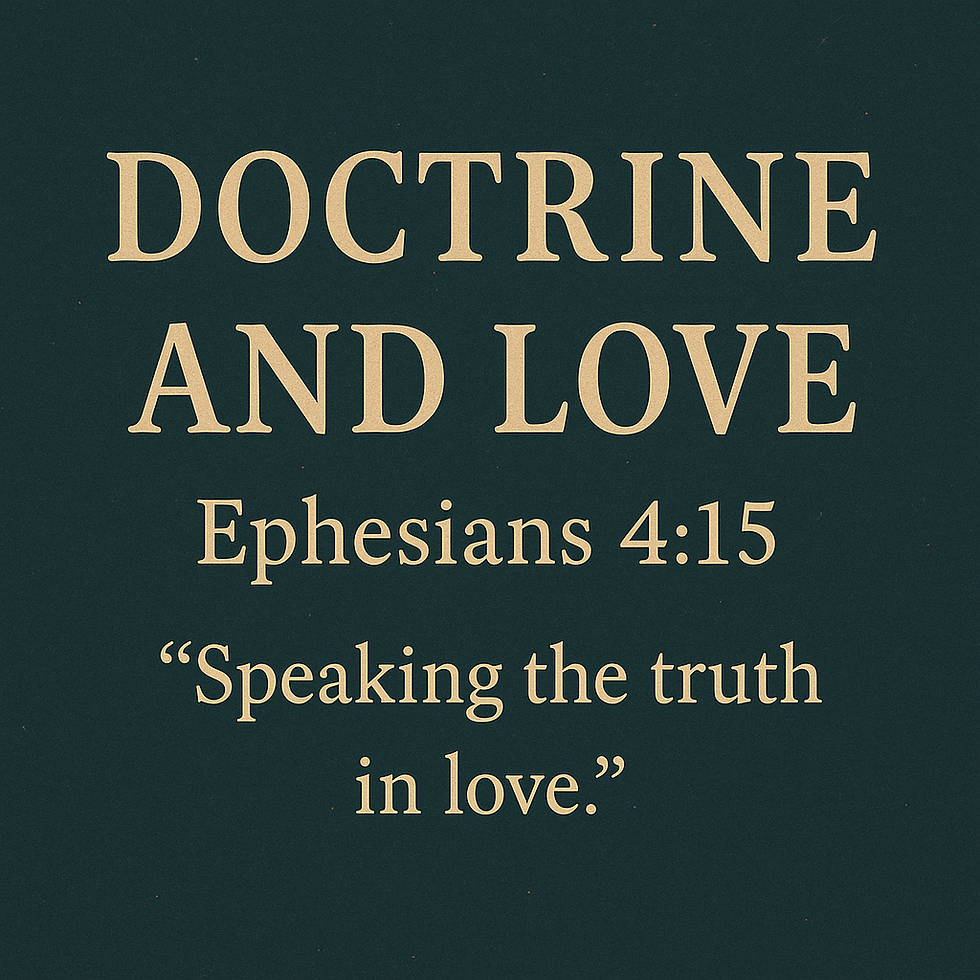Day 8: The Serpent's Question
- Corby Davis
- Sep 11, 2025
- 2 min read
Scripture Reading:
“Now the serpent was more crafty than any beast of the field which Yahweh God had made. And he said to the woman, ‘Indeed, has God said…?’” – Genesis 3:1, LSB
The first attack on humanity was not with a weapon but with a question. The serpent’s words—“Did God really say?”—were a direct challenge to God’s authority. By questioning the truth of God’s Word, Satan planted doubt, and that doubt bore the fruit of disobedience and death.
From the beginning, Satan’s strategy has been to undermine doctrine by casting suspicion on God’s Word. If God’s Word cannot be trusted, then truth collapses, holiness falters, and worship fades. This is why doctrine is so essential: it anchors us in the conviction that God has spoken clearly and authoritatively.
John Calvin observed, “The first step of obedience is to listen; and Satan endeavors, by every means, to render the Word of God contemptible” (Commentary on Genesis 3:1). When Eve began to question God’s command, she had already begun to slide toward disobedience. Doubting the Word always precedes disobeying the Word.
This pattern continues throughout history. False teachers do not always begin by outright denying God’s Word; they often begin by twisting it or softening it. Paul warned that some would “distort the word of God” for personal gain (2 Cor. 2:17). Others, he wrote, would appear as “servants of righteousness” while spreading deception (2 Cor. 11:13–15). Satan rarely discards Scripture entirely; instead, he corrupts it.
That is why the doctrine of Scripture is foundational. If God’s Word is not clear, authoritative, and sufficient, then the church has no stable ground. Louis Berkhof wrote, “The denial of the Word is always the beginning of apostasy” (Systematic Theology, p. 60). To question whether God has really spoken is to open the door to confusion and ruin.
Sound doctrine defends against this ancient lie. By affirming the inspiration, inerrancy, and sufficiency of Scripture, the church answers the serpent’s question with a resounding “Yes, God has said!” When we hold fast to God’s Word, we resist Satan’s schemes and walk in holiness.
Beloved, the serpent’s question still echoes today. We hear it in academic skepticism, in cultural relativism, and even in pulpits that question whether Scripture is enough. Every age has its “Did God really say?” But every faithful church must respond, “Yes—He has spoken, and His Word is truth.”
Personal Reflection
Why was the serpent’s first attack aimed at God’s Word instead of something else?
How does doubting God’s Word lead to disobedience?
In what ways does Satan still whisper “Did God really say?” in today’s world?
How can you strengthen your confidence in the clarity and sufficiency of Scripture?



Comments